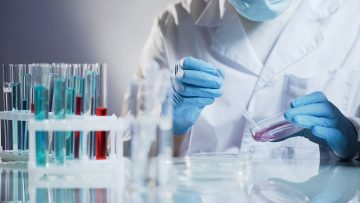Guys who wish to no longer father children often opt for a vasectomy, which is equal parts effective and permanent. Men who undergo the operation and later decide they want to reverse it have to endure a more complicated surgery which may or may not actually restore their reproductive abilities. Now, a vasectomy alternative called Vasalgel is making its way through its testing phase and it might truly offer men the same kind of easily reversible contraception that women can opt for with an IUD.
When a guy has a vasectomy, the doctor physically cuts off the path that the sperm travel from the testicles to the penis, called the vas deferens. It’s extremely effective, but potentially drastic. Vasalgel also works by removing that pathway, but instead of physically slicing the tube, a small amount of the gel is injected into the vas deferens, forming a temporary wall that prevents sperm from progressing. Later, if the patient decides that he wants to restore his fertility, the gel can be flushed out.
A new study published in Basic And Clinical Andrology reveals that Vasalgel testing in monkeys has been a huge success, with a total of 16 male rhesus monkeys undergoing an injection of the material. The monkeys are part of California’s National Primate Research Center, where many male animals are typically given vasectomies to prevent unwanted pregnancies. With Vasalgel replacing the typical surgery, the result was the same, and none of the 16 subjects were found to have fathered offspring after the breeding season.
The logical next step for the research is to confirm that Vasalgel can be successfully and reliably removed, and that doing so restores fertility in the monkeys. The lead researcher is currently raising support to continue the study and potentially give Vasalgel the boost it needs to be considered for human trials in the US.








